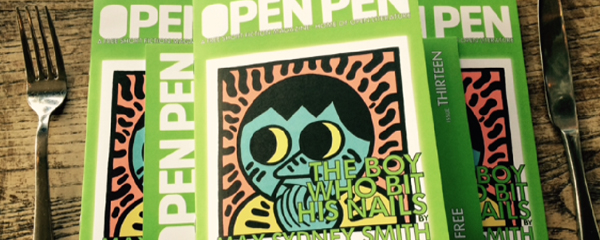SHORT STORY ADAPTATIONS: this month, Dr. CHRIS MACHELL takes us into alien territory with Denis Villeneuve’s film adaptation of Ted Chiang’s ‘Story of Your Life’: ‘Villeneuve restructures the themes of Chiang’s text to explore the ways that the visual language of cinema represents time as an experiential phenomenon shaped by memory and emotion…’
More than twenty years after his first encounter with ‘Kleist in Thun’, BEN WINCH continues to be dazzled: ‘each time I gaze into that mirror—a mirror-within-mirror, and therefore, if the angle’s just right, a particularly dazzling one—I see a different face. ‘
TRACY FELLS explores the emotional resonance of three very different short stories: ‘When you read a short story that thwacks an emotional punch or haunts your daydreams then you have to talk about it. I read at least one short story daily, so what prompts me to talk about specific pieces…?’
NAOMI FOYLE looks at Arab Sci-Fi in the pages of ‘Iraq +100: Stories From a Century After the Invasion’: ‘a landmark anthology of short stories in a scintillating variety of genres and tones, a book of riveting ulterior visions…’
In the first of our new series featuring the editors of literary magazines, David Frankel speaks with Sean Preston, editor of Open Pen Magazine.
JO COLE finds that women are still from Venus and men are still from Mars in Hilary Mantel’s short story ‘Winter Break’: ‘Science demonstrates that the differences between men and women are real. Women have 11% more neurons in the brain’s hearing areas than men so consequently can hear better.’
DR CHRIS MACHELL discusses the themes of James Bond stories and their adaptations: ‘…as the films were not produced in the sequence of the books’ publication, continuity between stories was usually either abandoned altogether or significantly rejigged. This method of adaptation resulted in the films often bearing little resemblance to their source texts…’
ALISON GIBBS examines how characters are shaped by politics in Nadine Gordimer’s short story, ‘The Catch’: ‘While Nadine Gordimer was known for both her fiction and her outspoken opposition to apartheid in her native South Africa, she always insisted that politics was not the driving motivation for her stories.’
ROSEMARY GEMMELL looks at Charlotte Perkins Gilman’s classic short story, ‘The Yellow Wallpaper’: ‘When a work of fiction receives the comment that “such a story ought not to be written”, it surely begs the reader to find out why, especially when the critic claims “it was enough to drive anyone mad”.’
NICOLE MANSOUR takes a look at Chris Power’s Debut Collection, ‘Mothers’: ‘Throughout this collection, we encounter characters who have arrived at the intersections of their lives. They are people who find themselves in unfamiliar landscapes, or who have become isolated…’









